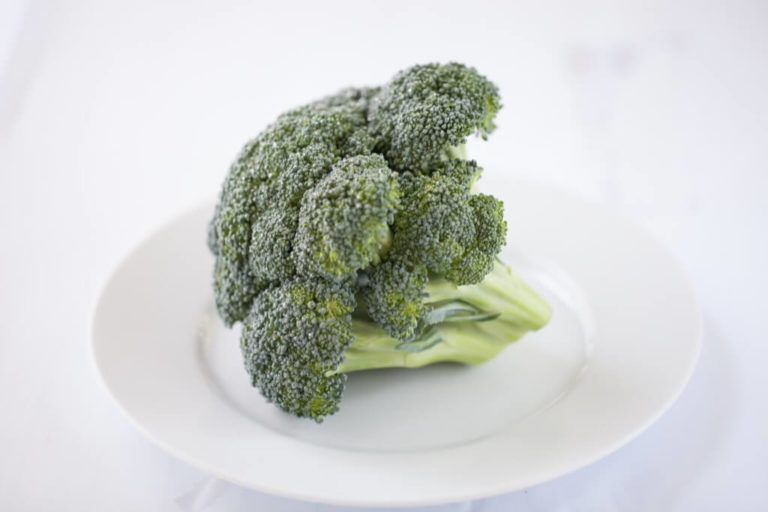WHAT HAPPENS WHEN YOU EAT LESS AND MOVE MORE.
Losing weight is simple, just “eat less and move more”. Problem solved. But is it? What if I told you this method in fact sets you up to fail and you will end up with even bigger problems than before?
Let’s use The Biggest Loser study published in 2016 in journal ‘Obesity’ to try and understand what happens when you not only drastically reduce calories but at the same time also markedly increase physical activity.
THE BIGGEST LOSER
It is a show where 14 obese participants compete to lose weight within a 30 week time frame. They live together in a controlled environment, are forced to train for up to 2 hours per day 6 days per week and their caloric intake is drastically reduced down to 1200-1500 calories. The person who loses the most weight wins the show.
And boy do they lose weight!
The average weight loss per person was 127 pounds. The result clearly proves the formula “eat less move more” works, right? Well, not so fast.
The study is significant because it revisits the contestants 6 years later. Now take a guess as to how many out of the 14 contestants maintained their weight loss. Less than half? Less than quarter? One. Yes you read it right, only one contestant out of 14 maintained the initial weight loss, meaning 13 contestants regained weight. 93% failure rate?
WHAT WENT WRONG

1. THEIR METABOLISM SLOWED DOWN
the body will always adapt to new conditions, it will always try to protect you in order to survive.
If you start eating significantly less, yes you will lose weight, however your body will quickly adapt and will start burning less energy. It will not burn the same amount of calories as it did before the caloric reduction. This is part of metabolic adaptation which also includes hormonal changes.
What this study found was that even 6 years after the drastic restrictions, the Resting Metabolic Rate (RMR) remained as slow as it did straight after the competition.
the participants with the greatest weight loss at the end of the competition also experienced the greatest slowing of RMR at the time”
Average RMR before filming: 2,607 kcal burned / day.
Average RMR after 30 weeks : 1,996 kcal burned / day.
Average RMR 6 years follow up: 1,903 kcal burned / day.
6 years later participants were burning on average 700 fewer calories per day at rest vs. before the competition.
2. THEIR LEPTIN PLUMMETED
Leptin is a hormone released from fat cells. It is also referred to as the the satiation hormone. It’s role, among others, is to monitor appetite. Leptin sends signals to the brain when we are full/satiated and can stop eating. Low levels lead to increased hunger.
According to the study findings, the contestants must have been absolutely starving. Their Leptin levels dropped from the average of 41.14 (ng/mL) to as low as 2.56 (ng/mL) which is a drastic change. That’s not the most shocking part of course, their leptin levels have never returned to baseline (pre-competition levels) even after 6 years follow up and weight re-gain.
To put it simply, their appetite increased and their metabolism slowed down. Absolute worst conditions for weight loss. I would also imagine they were not able to keep up with the 2 hr vigorous exercise program 6 days per week which would further reduce their energy expenditure. No wonder only one contestant managed to keep the weight off.
WHAT CAN WE LEARN FROM THIS STUDY
Extreme calorie reduction diets combined with a vigorous training program do not work long term. Yes, you will lose weight on a 1200 kcal diet but the odds of maintaining it are strongly against you.
I’ve not even mentioned the negative mental implications that most of these contestants have also experienced. There are many videos online where they speak up about feeling depressed, lost, resentful.
DO THIS INSTEAD

Use habit based approach to weight loss.
Focus on creating habits which are maintainable long term instead of drastic intervention.
1. Whole foods over processed foods
reevaluate the foods you eat. Eat foods which satiate you, which help you feel full so that you can end up eating less calories naturally without any calculations. Notice which foods tempt you to overeat. Avoid those and replace them with whole food alternatives. It’s much easier to drink a bottle of smoothie than to eat the equivalent amount of fruit.
2. Protein and Healthy Fats over Sugar
include protein and healthy fats in your diet and limit carbohydrates. prioritise protein which is the most satiating macronutrient. It is very difficult to overeat on eggs, avocados or meat, it is however almost impossible to not overeat on pizza and sugar.
3. Intermittent or Extended Fasting
use intermittent fasting as a strategy to burn stored body fat. If you don’t want to fast daily, include 2 extended fasts in your week so that your body can burn the fat you already have, instead of constantly running on newly supplied energy aka food.
4. Increase your NON-exercise activity
this includes basic movements/activity throughout the day; walking more, standing, taking the stairs, cleaning the house, taking every opportunity to move more, even fidgeting counts. Make these a habit which will become maintainable long term.
5. Get Stronger
if you wish to exercise, do it slowly and prioritise weight training. Avoid long cardio sessions, those will only make you hungrier and are not sustainable long term. Weight training will increase your lean muscle mass and muscle burns more energy than fat at rest.
5. Walk
include walking in your daily routine. this is the best exercise for people who are obese or overweight, it will not make you hungry unlike running, it is gentle on your joints unlike running, it is sustainable long term unlike running. Swimming and cycling are also great options.
Hope you found this helpful xox
REFERENCE:
Fothergill, Erin et al. “Persistent metabolic adaptation 6 years after “The Biggest Loser” competition.” Obesity (Silver Spring, Md.) vol. 24,8 (2016): 1612-9. doi:10.1002/oby.21538







